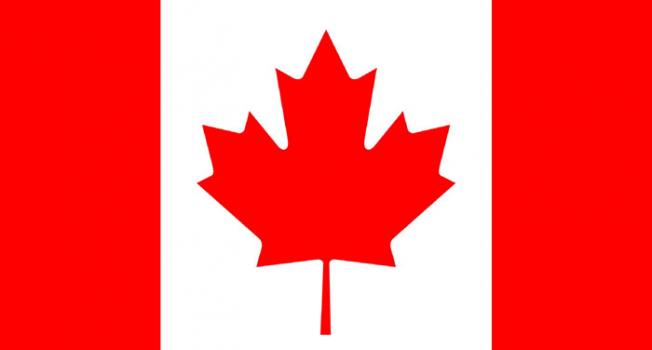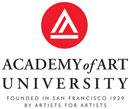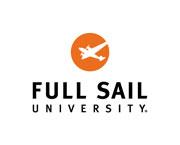
Canada has a booming animation and visual effects industry that produces thousands of animated films, commercials, and television series each year. Home to one of the largest animation studios in North America (9 Story Media Group, Toronto) and the fourth largest visual effects center in the world (Montreal), our neighbor to the north even produces some of the world’s top animators. Two Canadian animators—Dean DeBlois (How to Train Your Dragon and How to Train Your Dragon 2) and Graham Annable (The Boxtrolls), and Norwegian-born Montreal film director and animator Torill Kove (Me and My Moulton)—all received Oscar nominations.
Canada offers attractive tax and financial incentives for animators and filmmakers, it is home to literally hundreds of top film and animation studios, and it houses thousands of companies that are always looking for talented animators. Canada is also home to hundreds of major game design studios, as well as top creative agencies and design firms. All things considered, it’s safe to say that Canada is probably one of the best places on earth to be an animator.
It’s not surprising that most animation students remain in Canada after graduation. And the country even attracts both aspiring and seasoned animators from around the world—especially from the U.S. The country’s close proximity to so many U.S. cities and a feeling of being at home (Toronto routinely doubles cities such as New York, Boston, Washington, and Chicago) make Canada an ideal place for Americans to work, study abroad, or even enroll in a full-time program. Students from international cities such as Paris, London, Morocco, Saigon, and Tehran might get the same feeling.
Before we get into the requirements to study abroad in Canada, let’s take a look at some specific highlights of two of country’s top cities for animators and filmmakers.
Toronto
With a population of more than 2.6 million (2011), Toronto is the largest city in Canada and ranks as one of the world’s most livable. A global center for arts and culture, Toronto is the country’s center for the film, media, publishing, information technology, and telecommunications industries. An “outlet for creativity and talent,” says the City of Toronto, “Hollywood North” is a place where actors, animators, designers, carpenters, make-up artists, and writers can “hone their craft and thrive.” Toronto is home to:
- Award-winning animators, visual/special effects professionals, game developers
- Sixty-six percent more artists that any other city in Canada
- More than 80 film festivals including the Toronto Animation Arts Festival International (TAAFI) and the Toronto Film Festival (TIFF)
- The world's largest purpose-built sound stage
- The Toronto Film, Television & Digital Media Board
- Ten city-owned museums
- Approximately 900,000 square feet of space to accommodate a full range of large and small productions
- More than 200 city-owned public art works and historic monuments
- The Toronto Film & Television Office (TFTO)
The city is also home to hundreds of animation, film, game, and visual effects studios. And according to the City of Toronto website, “screen-based production and digital media industries are two of the three fastest-growing creative industries in Toronto, contributing more than $1 billion to the local economy annually and directly employing approximately 25,000 people, more than 25 percent of the national sector.”
The following is a list of around a dozen Toronto animation studios along with a list of schools that offer animation programs:
- 9 Story Media Group
- ACME Pictures
- AIC Studios
- Cuppa Coffee Studios
- Gameloft
- Guru Studio
- Head Gear Animation
- House of Cool Studios
- Pipeline Studios
- SPIN VFX
- Squeeze Animation Studio
- Tendril Design and Animation
- Twisted Frame
Animation Schools
- Centennial College
- Max the Mutt College of Animation, Art & Design
- Ontario College of Art and Design (OCAD)
- Ontario College of Art and Design (OCAD)
- Royal College of Art
- Seneca College
- Sheridan College, Oakville (less than 40 miles outside Toronto)
Dean DeBlois, writer and director of the Oscar nominated films How to Train Your Dragon and How to Train Your Dragon 2, is a Sheridan College alum.
Montreal
According to Institute De La Statistique Quebec, the population of Montreal is just over two million, making it the second largest city in Canada. It is also the second-largest primarily French-speaking city in the world, after Paris. Here is what the city has to offer aspiring animators:
- Over 40 visual effects and animation companies
- 35,000 direct jobs in cinema and television production
- More than 500 production and broadcasting companies
- One of the world’s largest post-production hubs, with $42 million generated in this sector
- Up to 44 percent in tax incentives on production services
- One of the largest sound stages in Canada
- 170 foreign shootings over the past five years
- Stand-in for many North-American and European cities
- Largest concentration of modern studios using leading-edge technology in Canada
- 50 high-tech sound stages, including one of the largest in North America—Studio H at Mel’s Cité du cinéma: 36,500 sq. ft. (3,346 m2), located just minutes from downtown Montréal.
- Many world leaders in special effects: Digital Dimension, Framestore, Hybride, Modus FX, Rodeo FX and Mokko
- More than 60 game creation studios, including Ubisoft, Gameloft, Warner Brothers Interactive, A2M, Eidos and Electronic Arts, Greater Montréal is one of the world’s video game hubs—a sizeable asset at a time when the video game industry is converging with the film industry
Filmmakers such as Steven Spielberg, Jean-Pierre Jeunet, Luc Besson, Roland Emmerich, and Wim Wenders have set up shop in Montreal to take advantage of the financial incentives, natural scenery, post-production studios, filming infrastructures, and new visual effects techniques the city has to offer.
The following is a list of around a dozen Toronto animation studios, along with a list of schools that offer animation programs:
- BarXseven
- Big Bang Digital Studios
- BUF
- Designorganik
- Digital Griffix
- Di-O-Matic
- Flip-Animation
- Mind Avenue
- Mokko Studios
- NDI Media
- Oasis Animation
- PIXI Studio
- ToonBoom
Animation Schools
- Cégep du Vieux Montreal
- Champlain College (Burlington, VT) (Montreal Branch)
- Concordia University
- Dawson College
- Herzing College (Menomonee, WI), Montreal Campus
- Inter-Dec College
- McGill University
- National Animation and Design Centre
- Visual Arts Centre
The buck doesn’t stop at Toronto and Montreal either. Other major cities across Canada are popular in the animation and film industry, so they are well worth exploring. Consider Quebec City (one of the oldest cities in North America), Ottawa (known as “Silicon Valley North”), Vancouver (world-class city renowned for its quality of life), Edmonton (known as “Festival City”), Calgary (largest city in Alberta), Winnipeg (fastest growing economy of Canada’s major cities), Hamilton (around 70 miles south of Toronto), and Kitchener—the largest and most innovative, creative, and culturally diverse city in the Waterloo Region.
Studying Abroad in Canada
If you’ve seen enough and you’re ready to pack up and head to Canada, you can get the ball rolling by checking with your program coordinator and the study abroad office at your school. While doing research on your own is never a bad thing (more on this in a sec), your program coordinator and the study abroad office are experienced with helping match students with the right overseas studio. They will also have access to a variety of resources and can provide plenty of advice about accommodations, financing your trip, local customs, and requirements.
If you want to do some research on your own, the following are a just few places to look. We’ve also provided some information about visa requirements to help get you started on the legal requirements to study abroad in Canada.
StudyAbroad.com
3803 West Chester Pk., Suite 125
Newtown Sq, PA 19073 USA
Phone: 484-766-2920
Fax: 610-499-9205
Website: http://www.studyabroad.com/in-canada
Email: [email protected]
GoAbroad
2850 McClelland Dr.
Suite 2700
Fort Collins CO 80525 U.S.A.
Phone: 720-570-1702
Fax: 720-570-1703
Website: http://www.goabroad.com/study-abroad/search/canada/study-abroad-1
Contact: http://www.goabroad.com/about
GoOverseas.com
2040 Bancroft Way
Suite 200
Berkeley, CA 94704
Phone: 415-796-6456
Website: https://www.gooverseas.com/study-abroad/canada
Contact Form: https://www.gooverseas.com/contact-go-overseas
The following requirements for study in Canada were provided by the Government of Canada.
To be eligible to study in Canada
- You must have been accepted by a designated learning institution in Canada.
- You must prove that you have enough money to pay for your:
- tuition fees
- living expenses for yourself and any family members who come with you to Canada and
- return transportation for yourself and any family members who come with you to Canada.
- You must be a law-abiding citizen with no criminal record and not be a risk to the security of Canada. You may have to provide a police certificate.
- You must be in good health and willing to complete a medical examination, if necessary.
- You must satisfy an immigration officer that you will leave Canada at the end of your authorized stay.
Exceptions
In some cases, you do not require a study permit to go to school in Canada.
- If you wish to study in a short-term course or program
You do not need a study permit if you plan to take a course or program in Canada that lasts six months or less. You must complete the course or program within the period authorized for your stay in Canada.
- Foreign representatives to Canada
If you are a family member or staff member of a foreign representative to Canada accredited by Global Affairs Canada (GAC), you may not need a permit to study in Canada. You should contact your embassy in Canada. Your embassy can contact the Office of Protocol at GAC to find out whether you need a study permit.
- Members of foreign armed forces
If you are a member of a foreign-armed force under the Visiting Forces Act, you do not need a permit to study in Canada. If your family members, including minor children, want to study in Canada, they must meet the requirements.
- Foreign nationals who are Registered Indians in Canada
If you are a citizen of another country who has Registered Indian status in Canada, you do not need a permit to study in Canada.
More Schools to Consider:
- San Francisco & Online
- Top 50 Nationally for Animation (#14) - 2021
- Top 50 Nationally for Game Design (#37) - 2021
- Top 50 Nationally for Illustration (#24) - 2021
- Top 50 Nationally for Graphic Design (#38) - 2021
- Winter Park, FL & Online
- Computer Animation - Bachelor's - Online & Campus
- Game Programs - Bachelor's & Master's - Online & Campus
- Graphic Design & Digital Arts - Bachelor's - Online & Campus
- Film & Digital Cinematography - Bachelor's & Master's - Online & Campus
- Mobile Development - Bachelor's - Online
- Simulation & Visualization - Bachelor's - Campus
- Top 50 Nationally for Animation (#11) - 2021
- Top 50 Nationally for Game Design (#10) - 2021
- Top 25 in the South for Graphic Design (#10) - 2021
- Online
Sources
Adler, Jordan. "Animators Wanted: A Look inside Canada's Booming Animation Landscape." Toronto Film Scene. Toronto Film Scene, 01 Aug. 2015. Web. 12 Oct. 2016.
"Alumni Events 2016." Inside the Making of a Blockbuster: Two-time Oscar Nominee, Golden Globe Winner and Sheridan Animation Graduate Dean DeBlois '90. Sheridan College, 2016. Web. 12 Oct. 2016.
Andrew. "Top 20 Schools to Study VFX/Animation and Next-Gen Gaming for 2015." CG Student Awards Magazine. CG Student Awards Magazine, 25 June 2015. Web. 12 Oct. 2016.
"Arts and Culture, Toronto Facts. "Toronto Film, Television and Digital Media Office. City of Toronto, 1998-2016. Web. 12 Oct. 2016.
"Choose Toronto for Your Shoot - Why Film in Toronto."Toronto Film, Television and Digital Media Office. City of Toronto, 1998-2016. Web. 12 Oct. 2016.
City of Kitchener. City of Kitchener, n.d. Web. 12 Oct. 2016.
Connelly, John. "Canada's Top 10 Most Populous Cities." Business Review Canada. Canada Business Review, 13 Apr. 2011. Web. 12 Oct. 2016.
"Determine Your Eligibility – Study in Canada." Government of Canada, Citizenship and Immigration Canada, Communications Branch. Government of Canada, 03 Aug. 2016. Web. 12 Oct. 2016.
"Film and Television - Montreal International." Montreal International (MTL INTL). Montreal International, 2016. Web. 12 Oct. 2016.
IMDb.com. IMDb.com, Inc., An Amazon Company, n.d. Web. 12 Oct. 2016.
Indeed.com. Indeed, n.d. Web. 12 Oct. 2016.
"Living in Ontario, City of Hamilton." Ontario Canada. Ontario Canada, n.d. Web. 12 Oct. 2016.
"Montreal." Wikipedia. Wikimedia Foundation, n.d. Web. 12 Oct. 2016.
News, CBC. "Torill Kove, Dean DeBlois Nominated for Animated Films at Oscars." CBCnews. CBC/Radio Canada, 15 Jan. 2015. Web. 12 Oct. 2016.
Paquette, Eric. "Computer Graphics In The Montreal Area." ACM SIGGRAPH Montreal. Montreal ACM SIGGRAPH, n.d. Web. 12 Oct. 2016.
"Population Projections, by Age Group and Sex, Montréal and All of Québec, Scenario A¹, 2011, 2016, 2021, 2026, 2031 and 2036." Institute De La Statistique Quebec. Government Du Quebec, 2015. Web. 12 Oct. 2016.
"Study Abroad in Canada | Canadian Study Abroad Programs." StudyAbroad.com. EducationDynamics, LLC, 01 Aug. 2016. Web. 12 Oct. 2016.
"The Advantages of Montréal - Vfx-montreal.com." VFX Montreal. Quebec Film and Television Council, n.d. Web. 12 Oct. 2016.
The Canadian Animation Directory. The Ottawa International Animation Festival, n.d. Web. 12 Oct. 2016.
"Top 8 Nicknames for the City of Toronto." InsideToronto.com. Metroland Media Group LTD, 05 Aug. 2014. Web. 12 Oct. 2016.
"Top 10 Animation, Gaming and Art and Design Schools in Canada." Universities Colleges & Schools. UC Education Marketing, n.d. Web. 12 Oct. 2016.
2011 Census: Population and Dwelling Counts (n.d.): n. pag. City of Toronto. City of Toronto, 09 May 2011. Web. 12 Oct. 2016.



